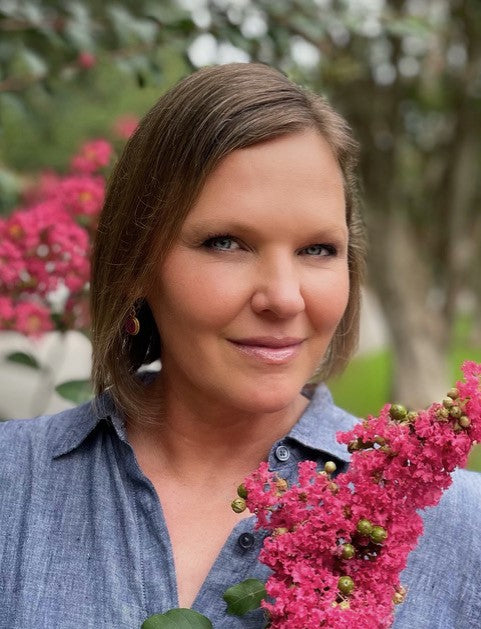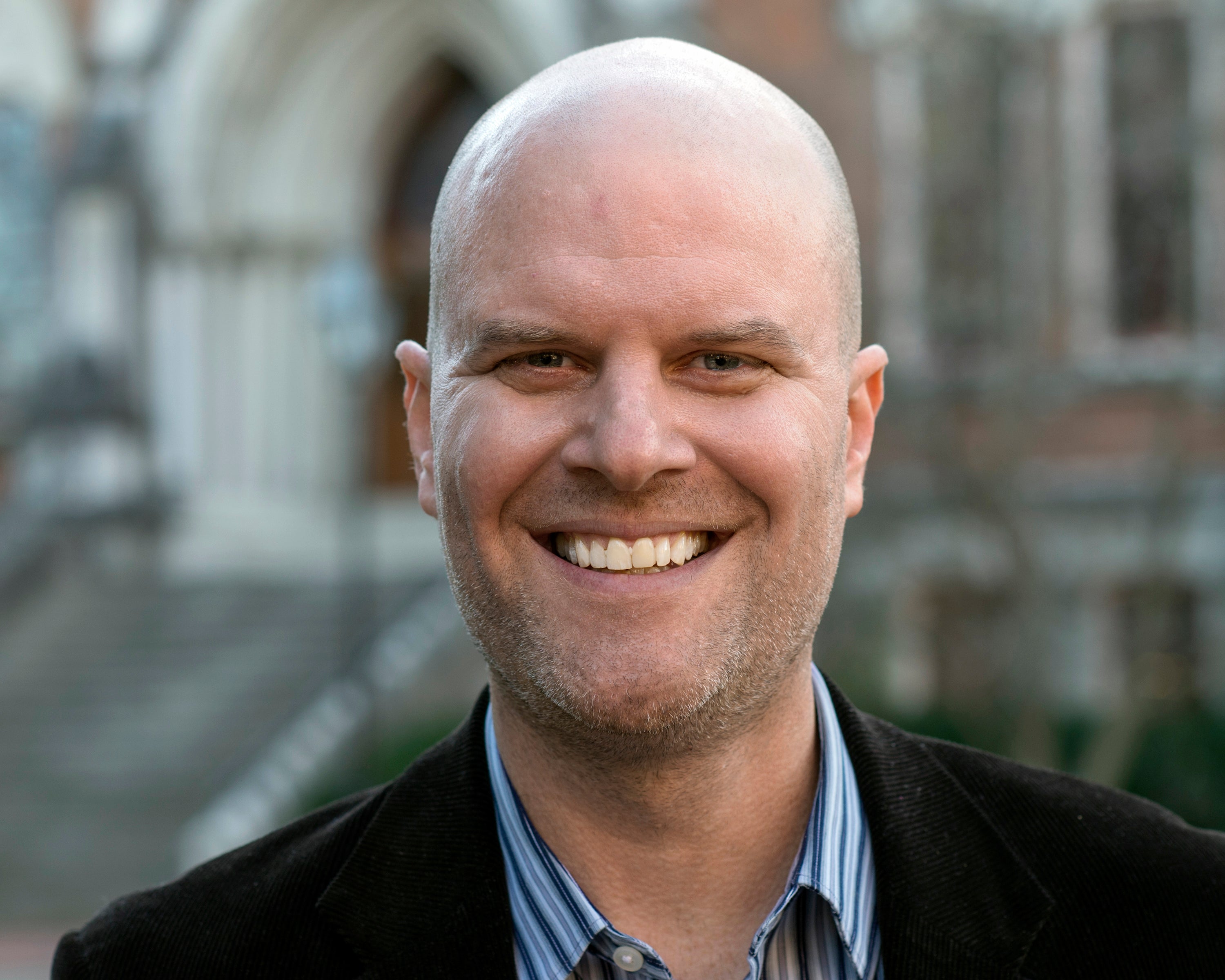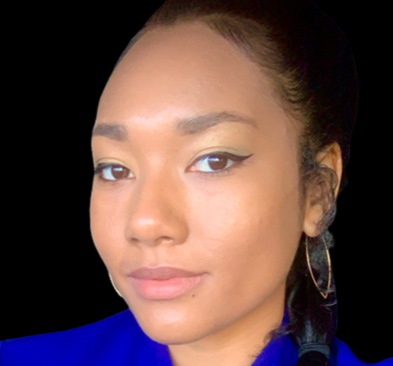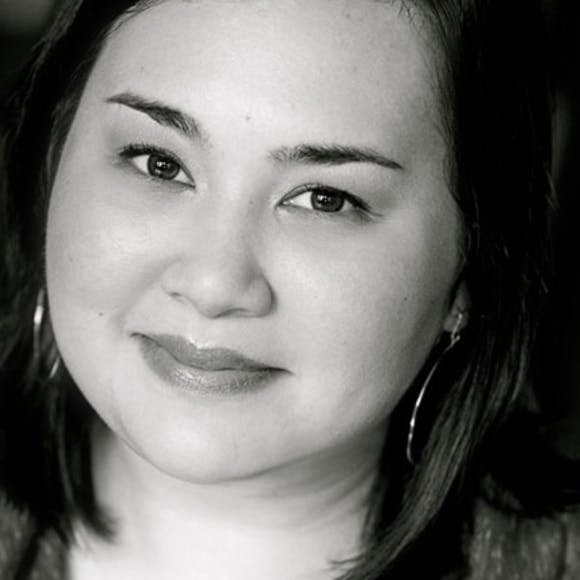Book: Bevelations
Author: Bevy Smith
Author Bio:
"Smith's debut book "Bevelations: Lessons from a Mutha, Auntie, Bestie" which details her transition from a fashion advertising executive into a media personality was published through Andy Cohen Books, the eponymous imprint at Henry Holt and Company on January 12, 2021.
Quintessential Harlem girl, Gracie Award winner, and life-long New Yorker Bevy Smith is the host of Sirius XM's "Bevelations" on Radio Andy. Once a wildly successful luxury fashion publishing exec, Smith is a firm believer in her number one BEVELATION #ItGetsGreaterLater. Bevy proves this every day, especially when she changed her life at the age of 38 and pursued a career in the youth oriented culture of entertainment television. A pop culture aficionado and fashion expert, Bevy served as moderator of Bravo TV's revolutionary "Fashion Queens," and was a former co-host on the nationally syndicated "Page Six TV." Bevy continues to be part of "The Wendy Williams Show's Style Squad."
For the past five years, Bevy has hosted "Fashion for Action," an annual fundraiser for Housing Works, a New York-based thrift store chain and advocacy group that helps find appropriate housing for people living with HIV and AIDS. In 2017, Smith was named Community Champion of AIDS Organization Harlem United. Additionally, Bevy is on the board of Cool Culture, a charity devoted to raising awareness among underprivileged children. Bevy is also both a formal and informal mentor to many, she takes great pride in being a part of WEEN (Women in Entertainment Empowerment Network)."
Transcription Below:
Isa: All right. Well, thank you so much again for taking time out of your day for this interview.
Bevy: Thank you for having me.
Isa: Yes, you're welcome. And congratulations on your new and first book. That must be super exciting. So I want to know a little bit more about what your experience was like as a black woman working in a whitewashed magazine world?
Bevy: Wow. Well, you know, I worked at Vibe magazine before I ever went to Rolling Stone magazine. And so Vibe was, you know, I would say 98%, black. And so it felt like home. I'm born and raised in Harlem, which is a world famous black enclave. And of course, you know, the great Harlem Renaissance, one of the greatest literary movements of the 20th century, was born there. Although I grew up in an all black community, my first forays into fashion and into advertising was in all white spaces.
So the majority of my career was actually spent working in entirely white spaces. I worked at vibe magazine for five years. But the rest of my time, in fashion and in advertising was really spent in predominantly white spaces. So when I got to Rolling Stone magazine, I was very disconcerted to find out that the music magazine in 2005 still was not even dealing with the fact that hip hop, and black music were the predominant leaders of culture. And so that was a little bit like a red flag, like I can't believe this is 2005 it’s not like it's 1985, where hip hop is still new, and they think it might be a trend. It's like, by 2005, you already know, this music is here to stay. And it's been here for decades. You would think they would have gotten with the program. So that was really kind of weird and disconcerting.
But I have to say, because I spent the majority of my career working in all white spaces, it was not shocking to me to find that I had to deal with microaggressions around race, and also around gender as well. Because obviously I was the only woman on the sales team.
Isa: So tell me about the day in Milan, you had the realization, you hit rock bottom, what do you think triggered that breakdown?
Bevy: The moment in my life, when I realized that I needed to change my life came to me when I was in Milan. I had just landed, I was there for the fashion shows. And, you know, it was a very fabulous time. I had a car and a driver, I had all these gifts that all the major designers sent to my hotel room. And when I got there, I just realized that I was really thoroughly depressed. And I just didn't want to continue to live my life in that same way.
What was really tough about that was that I had spent probably at that point 15 years trying to get to that space, trying to become that person that I saw in the mirror. When I was in Milan, I spent many years dedicated to beating Beverly Smith, fashion advertising executive. So to have the realization that, that was some armor that I wanted to take off, and that I never wanted to put back on it was a really tough time for me. But ultimately, I made it through and I then began to change my life slowly but surely.
Isa: Leads me into my third question. So can you tell me a little bit about this paradox of living a luxurious yet unfulfilling life? Like what were those emotions that you were feeling?
Bevy: I wrote down on a pad and in the hotel room, fashion kills. I was definitely being really melodramatic, but at the time, it felt very real. I felt like the business of fashion was choking me and was stifling me. I felt that it was really a very abusive space to live and to work in. And I just felt like it was beautiful on the surface, but if you just scratch it, you don't have to dig, if you just scratch the surface of the fashion business you saw a caddy business that was built and fueled on people's insecurities, primarily women's insecurities.
Isa: What did you change in your lifestyle that helped you redirect your life towards one full of meaningful creativity and freedom, and how has that influenced the way you currently live your life now?
Bevy: I began journaling. And I began traveling by myself. And those are two things that I still do to this day. Journaling really helped me get out of my head. And it helped me to really start learning how to put my thoughts down on paper. And it's the one place where I could be really honest, with myself. Sometimes being incredibly honest with yourself is tough enough. But when you have to bear your truth to people, even as if it's people that you love, and that love you, and you can still live in fear of judgment. So I found that journaling was a great way for me to finally express the real me.
Traveling really helped me because it gave me a chance to go back to the core of who I am; Which is a persona that I called Little Brown Bevy. And I was able to tap back into the Little Brown Bevy, when I would travel by myself and got to see the world through her eyes.
Isa: So who is Little Brown Bevy?
Bevy: Little Brown Bevy is the best part of me, she's the core of me. In my book, there's a chapter called the Red Soul Proposition, and I asked folks to do this little test. Answer who you are at your core? how are you being perceived? How would you like to be perceived? For me, when I'm talking about Little Brown Bevy, that's why I'm on earth, when I did my digging and my excavating, I found out that the best parts of me are the parts that I had buried for so long.
It's the curious, shy, adventurous, empathetic girl, who is a little left of center, but who really has a very big heart, um, has a very big intellect, and ultimately has a real lust, and curiosity for life. All those attributes are really far better than the kind of personas that I had created.
Isa: So what piece of advice would you give someone who is walking in your footsteps today?
Bevy: Be brave, dare to dream and be resolute in what it is that you want out of your life. Do not let anyone dictate to you who you are. Because people are always so quick to tell you, who you are, what you're good at, and all that kind of stuff. People told me when I wanted to quit my big job as a fashion advertising director, “don't do that you're really good at this, that's silly.” And I was like, I'm really good at that. I'll always be really good at this thing and I knew that to be so. And so that's what I would tell folks is that you have to be the captain of your own ship. You have to determine who you are and who you're going to be in this world.
Isa: When the cameras go off, and the lights are no longer on who is Bevy Smith?
Bevy: Um, I think she's Little Brown Bevvy. I think I really do go back into that core part of me. I mean, I think about who I am when I'm traveling, where and when I'm traveling alone, it's so funny, because people often think, Oh, yeah, you travel by yourself, but you're so outgoing. So you must meet a lot of people. And it's like, I could meet a lot of people, I don't care to meet a lot of people. Because when I'm on those trips, by myself, I love, love, love to be isolated.
And I also love the anonymity that you experience where you can go somewhere in the world, when no one knows who you are. And oftentimes, you don't speak the language, they don't speak your language. I love that. And so, for me, that's what happens when I'm by myself.
My home is also very quiet. I'm not the person that's going to have a lot of TV on and radio and music and all this kind of stuff. I like quiet, I'd like to pick up a good book, you know, and I'd like to have a little glass of champagne, maybe make myself some food, that kind of thing. But it's real chill over here. That's really what goes down when I'm by myself.
Isa : That's awesome. So, what is something that readers will learn about you and revelations that you have never shared publicly before?
Bevy: Wow, there's a lot of stuff in there. What I think most people don't know is that I was engaged 2.5 times. And then something else, a lot of people don't know that I didn't graduate from college. I attended NYU, but didn't graduate. And I think something else that most people don't know, that they can find out when they read the book is that I'm very passionate about art and architecture. Um, those are not things that traditionally have come up in my life and in my career. And so a lot of people don't know that. So yeah, those are three things.
Isa: Oh, what did you major in at NYU?
Bevy: Marketing.
Isa: I go to NYU!
Bevy: Okay, yeah, you're gonna get your degree though lol. My publicist went to NYU, my other best friend with NYU, like, I'm surrounded by NYU folks and I am the one who didn't graduate. But we all wined up at the same time. So that's a good thing.
Isa: So readers are already gushing over your ability to be your true authentic self through print. Being that this is your debut novel, how is it finding your voice as an author, and was it challenging at all to remain authentic while writing?
Bevy: I've been preparing for this for a very long time. When I was going through financial hardship, hard times, I would l write in my journal, this is going to be really good for the book. You know, um, when I turned down the opportunity to be in a Bravo show, and then I didn't get another show for another seven years, I was like, that's gonna be really good for the book.
So I already had in my mind some stories that I've wanted the book to have. But when I opened the book with the second chapter, where I wrote about the ugly side of my beautiful life, and that opened it with what I felt was a very cinematic scene about me being in Milan, and feeling lost and just alone. Um, I definitely had that, that in my head, written years before I ever put it on paper.
Isa: Yeah, that's so good. So what is your advice to the people in their late 30s or early 40s that are currently reinventing themselves or making huge life slash career adjustments?
Bevy: The advice I always give is that you've got to figure out why you're unhappy with your current situation. And if you've done that work, then you can move on to how you get to happy and for me, I had to figure out what it was that I wanted most. And it wasn't a particular job. It was more a feeling that I'd want to enter a sensibility that I wanted to, I wanted creativity in my life every single day, and I wanted freedom. Those were the two big things that I desperately craved. Because I at a point, I just hated having the job just made me so unhappy. And so it was so great to have these, these moments where I was like, Okay, so now I know why I'm happy at my job. I know how I'm going to get out of it. But now what am I running towards?
And so for me, now, I still take my temperature in that way. I'm like, okay, Is this a, an opportunity that will bring me creativity and freedom? If it is, then I'm gung ho. If it's not, then normally, unless it's a whole bunch of money, I'll say no, you know, and so to people that are looking to pivot, and to change their lives and everything, I would say, first, you really have to identify what it is that you want out of your life? And it has to go beyond the stuff. Like you can't be like, I want to be rich, I want to be famous, like what not, has to be the real tangible things like, what do you want to feel like every single day when you get up? You want to feel inspired? Do you want, you know, some people like to have a routine, I don't like a routine.
I like every day being different. I like the feeling of you throw the balls up in the air, you see where they're going to land. But another thing I would advise anyone to do is if you're going to look to change your life, please consult with a financial advisor. For me, I didn't. And that landed me in a lot of hot water. And so I would say that, you know, one of my biggest mistakes even though I don't regret it, because I went broke. But because I went broke, I created a business called Dinner with Bevy, which in turn, gave me amazing relationships I would have never had with a list of celebrities like Kerry Washington and Pharrell, and Idris Elba, and different people like that. So it was good that I actually went broke, because if I consulted a financial advisor, before I quit, I probably wouldn't have been forced to create that business.
But I also have a real propensity for risk, like I'm not afraid of risk. Um, and so you have to analyze that, like, you know, are you risk averse? Do you have a high tolerance for risk? I do. So that works for me. And then the final thing I would say is that when you're looking to pivot and change your career, make sure that you're really pivoting into something that you're passionate about. You don't want to blow up your entire life, you don't want to throw away years of work that you've invested in the career that you currently have, or a job that you have, only to go into something to find out it's not something that you're going to do. I am so happy that I quit my job.
15 years later, I've had two TV shows, I have a radio show, I've written lots of different magazine articles, at great magazine outlets. And now I have a book that makes me very happy. But moving forward, those are not going to be the same things that make me happy. And so you have to always do a check in with yourself. And just to make sure that you're re upping your dream list, and to make sure that the excitement is still there.
Isa: So, you mentioned in a recent interview, that places you've worked in the past, such as Rolling Stone magazine, have a diversity problem. The problem is so bad that minorities struggle receiving entry level jobs. How do you see this changing over time? And do you feel as if there's a shift in companies wanting to hire more people of color?
Bevy: Yeah, I mean, that was 2005. And that was the Stone. The only black people there besides me was one editor, and then mailroom people and security, they needed to have a black receptionist. Um, so that's obviously problematic, and those who have no support staff, so that's problematic. Of course, that's all changing. Now, everyone's got on the list that they want to hire somebody black somebody brown you know what I mean? So that's good, but we still have to make sure that there are systems in place to help people succeed.
Because if everyone at the top looks like the traditional white male archetype of what a boss looks like, it doesn't matter if you hire people underneath him to to facilitate change because you cannot make change and the company unless you have the endorsement of the person that's on top. And so I'm always like, you know, what does the diversity mean, if it's not someone who controls the budget, if there's not someone who controls, you know, kind of like the ethos of a company, you know, you have to make those real significant changes. Now, you know, that's the reason why it's so important when we're talking about the lack of Black CEOs and fortune 500 companies that has to change. I think a lot of it is lip service but I'm always very happy to see people be a part of what back in the day, people used to refer to it as affirmative action hires. Um, I guess now, it's called diversity hires. But I think that, if that's what gets you in the door, you show up and show out and show and prove why you really do belong there, I said, you know, take it.
Isa: So, what's your best advice for getting over writer's block?
Bevy: Wow, um, you have to wait it out. Writer's block hits when it wants to. For me, I don't try not to be anguished over it. Very rarely is a deadline, a deadline. You know, there's always a little wiggle room. “Like do you really have to have it by x, y, z, date? I Need a little day or two, just to kind of get over my writer's block.
Also, for me, I find that fresh air helps from a writer's block. Sometimes just stopping and having a really good meal too. Not necessarily something heavy, but something that you absolutely love that you'll enjoy, like sitting down at a real table with a real plate with real cutlery that can help like immensely, because it just takes you out of that space of like, what am I gonna write, I owe these pages, whatever the story is. And so for me a good meal helps. Um, I've done massages before for writer's block, um, you know, a dip in the ocean. I worked on this book when I took a little trip to San Juan. And it was really great to just go get in the ocean, come back, and you know, be replenished, and breathe.
Isa: What's the best book you've read this year so far?
Bevy: Just as I am by Miss Cicely Tyson, I interviewed her right before she passed away. And I was so excited to interview her because I absolutely loved her book. I felt like the book was very raw, very honest, I felt like it was a look into a time gone by. Miss Tyson was 96 years old when she passed away. Very similar to my parents' age. And so I know what it's like to live with history. So I was very excited to talk to her and find out about her history. I think that Miss Tyson's book is a really great way to learn history. Great book for anyone who would like to know what it was like to be an artist in the 1950s up until 2021 when she passed away.
Isa: I have to read that book. It sounds interesting.
Bevy: I was really good.
Isa: What's the best advice you have received on happiness?
Bevy: Wow, the best advice. I don't know. Anything I would say would sound like a cliche, but I've not necessarily received advice. I've observed people that seem to be very happy. And what I learned is that happiness is never derived from material things. Ever. Like it's so nice to have, you know, the nice things that you want, whether it's a car, or it's clothes or bags, or you know, spa treatments, whatever, that's all very nice. But that's not how you get to be happy. How you get the happiest is when you're living a life that you feel fulfilled and when you feel like you're doing the work that you've been called to do. When you feel like you're actually, for me, challenging myself, and doing something that I'm afraid to do, but I do it anyway. That to me is happiness.
Isa: Yeah, I agree. So do you plan on writing any more books in the future?
Bevy: Yes, I do. I plan on writing a second book, I'm going to write a children's book, “The Chronicles of Little Brown Bevy” and that will be about my alter ego Little Brown Bevy. She'll travel the world by herself, but she will have trunks with her because she always wants to look well put together and dressed appropriately, no matter where she goes.
Isa: I love that idea. That's amazing. Thank you so much for your time. Yes, much love. have the best day and stay safe.
Bevy: Bye, guys.
Other Places To Find More From This Author:
Instagram: @bevysmith
Twitter: @bevysmith
Facebook: Bevy Smith
Website: www.bevysmith.com
Get Your Copy of Bevelations: Lessons from a Mutha, Auntie, Bestie Today!






